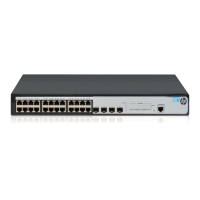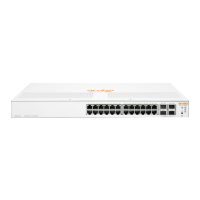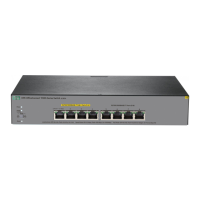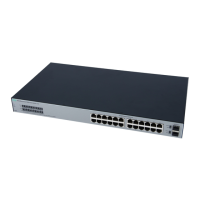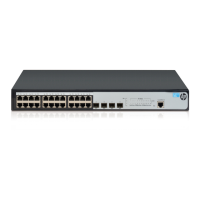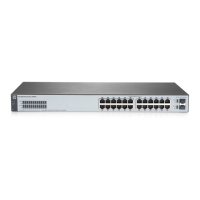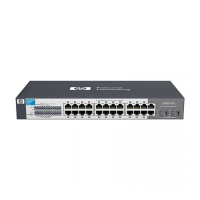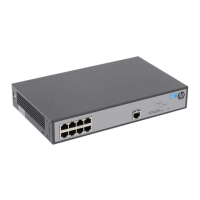tion
ACL
Select the advanced IPv4 ACL for which you want to configure
rules.
Available ACLs are advanced IPv4 ACLs.
Rule ID
Select the Rule ID box and enter a number for the rule.
If you do not specify the rule number, the system will assign
one automatically.
NOTE:
If the rule number you specify already exists, the following
operations modify the configuration of the rule.
Action
Select the action to be performed for packets matching the
rule.
• Permit—Allows matched packets to pass.
• Deny—Drops matched packets.
Non-First Fragments Only
Select this box to apply the rule to only non-first fragments.
If you do no select this box, the rule applies to all fragments
and non-fragments.
Logging
Select this box to keep a log of matched packets.
A log entry contains the ACL rule number, operation for the
matched packets, protocol number, source/destination
address, source/destination port number, and number of
matched packets.
IP Address Filter
Source IP Address
Select the Source IP Address box and enter a source IPv4
address and a source wildcard mask, in dotted decimal
notation.
Source Wildcard
Destination IP Address
Select the Source IP Address box and enter a source IP
address and a source wildcard mask, in dotted decimal
notation.
Destination Wildcard
Protocol
Select the protocol to be carried by IP.
If you select 1 ICMP, you can configure the ICMP message
type and code; if you select 6 TCP or 17 UDP, you can
configure the TCP or UDP port.
ICMP Type
ICMP Message
Specify the ICMP message type and code.
These items are available only when you select 1 ICMP from
the Protocol list.
If you select Other from the ICMP Message list, you need to
type values in the ICMP Type and ICMP Code fields.
Otherwise, the two fields will take the default values, which
cannot be changed.
ICMP Type
ICMP Code
TCP/UDP Port
TCP Connection
Established
Select this box to make the rule match packets used for
establishing and maintaining TCP connections.
These items are available only when you select 6 TCP from the
Protocol list.
